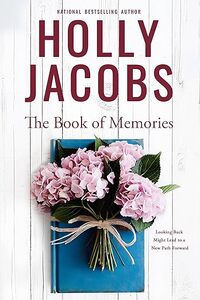Might not work for you. It’s a concept I’ve been mulling lately as I get ready
to teach another year of school, where I have to individualize learning to best
reach all my students. I was thinking about this concept as I read an article
in a writing magazine that said, “write every day, even if it’s for 20 minutes”
and also gave other such advice as “keep a journal”.
It’s great advice, sure. But I don’t do either and I’m a published author of 21
novels. I write in big spurts, and then will go weeks and sometimes months
without writing a thing. That “20 minutes” the author advises is spent doing
all those things I didn’t do during that intense focus on writing.
But that’s me. My big on and off spurts are how I balance and prioritize my
time, and that’s what I’ve learned works best for my life. During the school
year my priority is on my family and my teaching job. Writing is third. Over
the summer, I can easily make writing number two and devote 40+ hours a week to
my craft.
To me, writing is like dieting. For some, Jenny Craig works. For others, it’s
South Beach. For someone else it’s Weight Watchers. Others are naturally skinny
and don’t need to do a darn thing. The same holds true for writing. There are
plotsters, pantsters, and there are those who create scrapbooks, those who make
scrapbooks, those who interview their characters, those who enter contests,
those who sell the first time…the list goes on. Everyone is different, which is
logical. As each writer should have a unique, individual voice, each writer
will have his or her own individual writing style and system, that, through
trial and error works for him or her.
This system, or process, is personal. I see too many writers get bogged down in
the “how” they should be writing and trying to follow some system or formula
and thus they lose the actual writing. If something isn’t working after a few
tries, perhaps it isn’t for you. Just because it works for NYT best
selling author or your critique partner doesn’t mean that the approach is
perfect for everyone. I know writers who get up at 4 AM to create before their
family wakes. I’d die if I had to get up at 4 AM. When my alarm goes off at
5:25 for work, it’s too soon. I know writers who run every chapter by a
critique partner, and there are many writers like me who do that only on rare
occasions.
Don’t be afraid to do some personal assessing and figure out what works best
for you. Try new things and techniques, but don’t lose faith in your abilities
or talent if they fail to work. Remember, what works for one person doesn’t
mean it will work for everyone. So reassess and find something new. Writing
should be a happy time—a creative and pleasurable escape into your mind. So
just like trusting your own inner voice with your story, don’t be afraid to
take advice, but don’t be afraid to trust your gut if it tells you that advice
isn’t for you. After all, just as it’s your story, it’s your process. There is
no one writing process answer for everyone except for passion, persistence and
putting your fingers to the keys.
5 comments posted.
I enjoyed working on The Artist's Way By Julie Cameron years ago for writer's block. Well, I didn't have a block, but the exercises and stories of field trips were fun. I have pen and paper available everywhere, so when the muse strikes, I'm prepared. Learning how others get their stories out helps me choose which process to borrow for my own. The key to writing is to write it down.
(Alyson Widen 1:16pm August 3, 2009)
I've yet to find "what works" for me. Writing seems to be more spur of the moment and I am only able to write as the urge strikes.
(LuAnn Morgan 2:13pm August 3, 2009)
Your advice to the writer to "figure out what works best for you" should be a sticky note on the keyboard. Thanks for the reminder. I needed it.
(Barbara Scott 3:14pm August 3, 2009)
I just finished reading Save the Cat by Blake Snyder and found that by hit or miss, I'd come around to writing as he suggests in his book. Wish it hadn't take me quite so long to figure it out, but now I'm hoping I'll get a bit speedier.
(Kathryn Albright 6:35pm August 3, 2009)
Similar to the way you try to individualize the information for your students writers have different learning and writing styles and shouldn't be forced to all use the same method. How is that for one 'short' sentence? :>)
(Karin Tillotson 8:51pm August 3, 2009)


 © 2003-2025 off-the-edge.net
all rights reserved Privacy Policy
© 2003-2025 off-the-edge.net
all rights reserved Privacy Policy